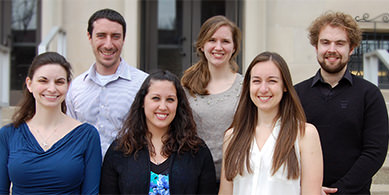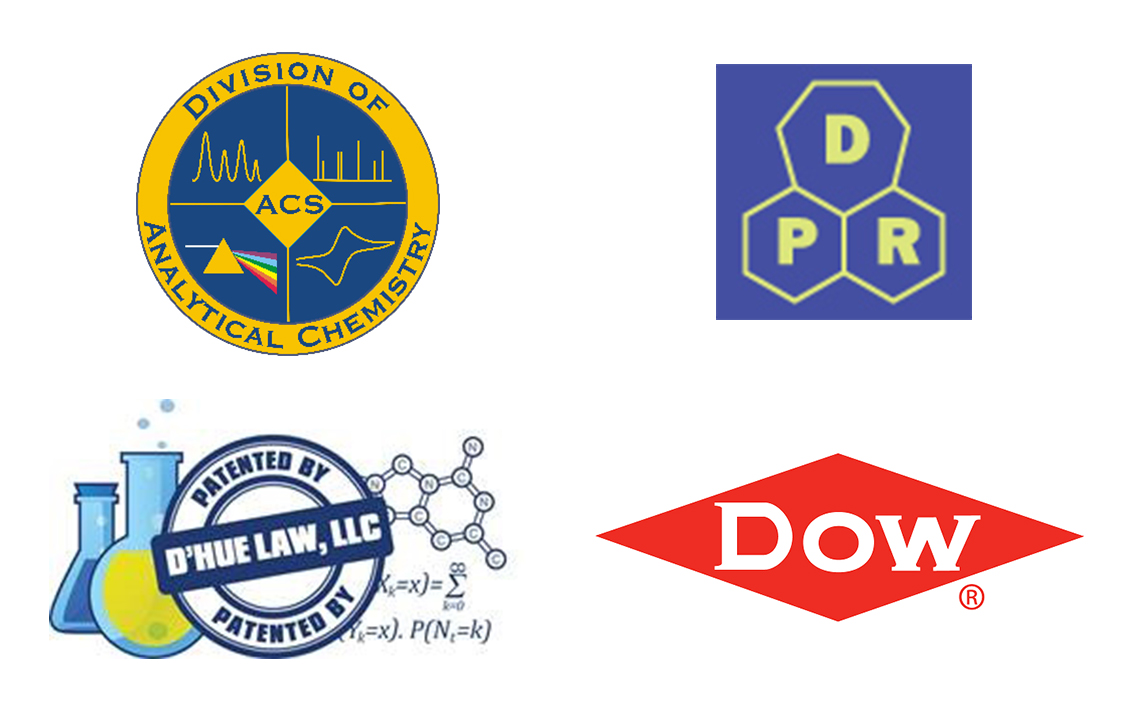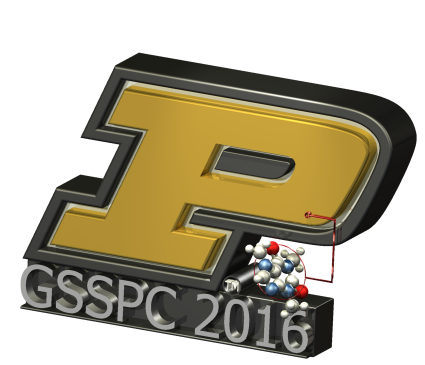Resolving the Big Picture; Bringing Molecules Into Focus

The Purdue Graduate Student Symposium Planning Committee (GSSPC) is tasked with delivering a symposium at the 251st ACS National Meeting on March 14th, 2016 on the subject of molecular imaging. We hope to deliver a symposium covering many modern research topics encompassed by this broad field.
If you have any questions related to the symposium, please don't hesitate to contact any one of the co-chairs.
News and Updates
Final Schedule for Monday the 14th of March, 2016
Morning session
0900 Introductory remarks
0905 Z. Cheng - Shedding Light on Diseases with Dark Material
0945 R. Y. Tsien - Moleucles for Multiscale Imaging, Against Cancer, or for Long-Term Memory Storage
1025 Intermission
1035 R. M. Caprioli - Imaging Mass Spectrometry: Moleuclar Microscopy for Biology and Medicine
1115 R. G. Cooks - Mass Spectrometry in Surgical Diagnosis and in Organic Synthesis
1155 Concluding remarks
Afternoon session
1400 Introductory remarks
1405 C. K. Payne - Imaging Intracellular Redox Chemistry: Spatially Resolved Sensing of Hydrogen Peroxide in Living Cells
1445 J. Cheng - In Vivo Vibrational Spectroscopic Imaging: Emerging Platform for Biology and Medicine
1525 Intermission
1535 M. K. Schnermann - Near IR Uncaging Chemistry: Discovery and Applications
1615 P. R. Selvin -Making the Brain Light-Up (In Cultures): New Small Quantum Dots and Super-Resolution Microscopy
1645 Concluding Remarks

The Purdue GSSPC is pleased to announce two confirmed speakers!
Professor R. Graham Cooks; Henry B. Hass Distinguished Professor of Analytical Chemistry, recently elected to the National Academy of Sciences. Professor Cooks' research covers many aspects of Mass Spectrometry from the fundamental aspects of ion chemistry to the clinical aspects of molecular imaging. Desorption Electrospray Ionization (DESI) was developed in his lab, is growing in its utility in the diagnostic and clinical chemistry fields and it has proven to be a fantastic, ambient method for the imaging of biological tissues without the need for sample pre-treatment.
Professor Ji-Xin Cheng; Professor in both the Weldon School of Engineering and the Department of Chemistry at Purdue University. Professor Chengs work pushes the limits of vibrational spectroscopy for imaging molecules in vivo, from vast reductions in the time required to collect such images to combinations of acoustic and spectroscopic techniques for deep tissue imaging.
The Purdue GSSPC is pleased to announce a confirmed speaker!
Professor Roger Y. Tsien: Professor of Pharmacology and Chemistry/Biochemistry at the University of California, San Diego, and Investigator of the Howard Hughes Medical Institute. Professor Tsien is best known for his development of fluorescent proteins to monitor gene expression and protein fates in cells and organisms. In 2008, Professor Tsien shared the Nobel Prize in chemistry for discovery and development of GFP (green fluorescent protein) with two other scientists, Professor Martin Chalfie and Professor Osamu Shimomura. His most recent work has two main foci: peptides to help treat cancer and the molecular basis of long-term memory.
The Purdue GSSPC is pleased to announce a confirmed speaker!
Professor Paul R. Selvin; a professor in the Department of Physics and Biophysics at the University of Illinois at Urbana-Champaign. He is known for his work with molecular motors and for developing the super-resolution technique FIONA—Fluorescence Imaging with One-Nanometer Accuracy. His group is currently working on ultra-structure determination of neuronal synapses using super-resolution microscopy.
The Purdue GSSPC is pleased to announce a confirmed speaker!
Professor Richard Caprioli; the Stanford Moore Professor of Biochemistry and Director of Mass Spectrometry at Vanderbilt University School of Medicine. Professor Caprioli's work involves the utilization of Matrix Assisted Laser Desorption (MALDI) mass spectrometry to produce images of biological tissues. His work involves many problems regarding the spacial distribution of molecular species in biological tissues and some of his group's latest research includes the fusion of microscopy and MALDI for multimodal molecular mapping of biological tissues.
The Purdue GSSPC is pleased to announce the first three confirmed speakers! - For more infomation, please see the Speakers page on this website.
Dr. Martin Schnermann
Professor Christine Payne
Professor Zhen Cheng

Co-Chairs
Anthony Tomaine
atomaine@purdue.edu
Kristen Gettys
kgettys@purdue.edu
Susannah Cox
cox55@purdue.edu
Heather Schoonover
hschoono@purdue.edu
Carly Schnoebelen
cschnoeb@purdue.edu
Stephen Ayrton
sayrton@purdue.edu